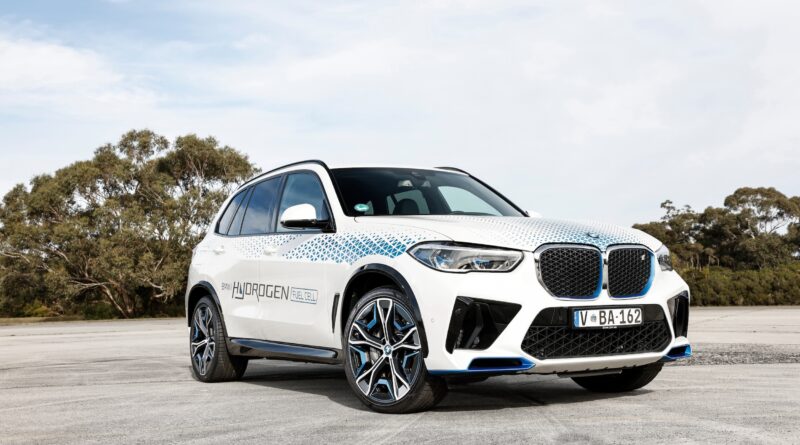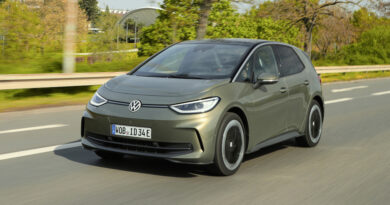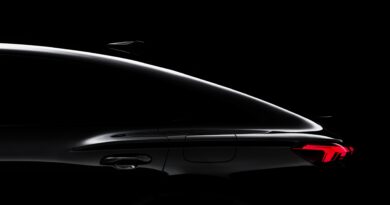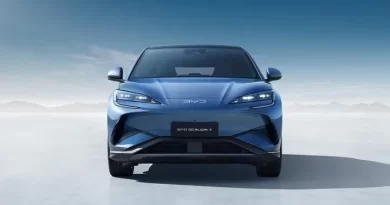Is hydrogen finally ready to go? BMW joins the fuel cell race in Australia with iX5 pilot cars
BMW has joined the local hydrogen race and plans to ramp up its push for fuel cell electric vehicle technology locally – although the performance and luxury brand is yet to sign off on a production program for the clean tech.
The German giant has joined Toyota and Hyundai in testing the hydrogen waters in Australia by sending two of its iX5 Hydrogen models Down Under for evaluation and a promotional tour to drum up interest in the clean fuel.
The left-hand drive iX5 pilot cars are two of fewer than 100 globally that utilise the body and underpinnings of the X5 large SUV but replace everything ICE with two hydrogen fuel tanks, a fuel cell, an electric motor and a sub 5kWh lithium-ion battery pack.
READ MORE: Water tight: Hyundai Nexo could be the start of big H2 things
READ MORE: Hydrogen-fuelled Hyundai N74 Vision supercar primed for 2026 debut
READ MORE: Toyota Hilux hydrogen fuel cell prototype boasts long range and rapid refilling
The fuel cell performs a chemical reaction to convert hydrogen to electricity with the only emission being water.
As such, the iX5 Hydrogen promises to drive like an EV – its single electric motor driving the rear wheels can produce 295kW – but can be refuelled in the same time as a petrol or diesel car – if you can find somewhere that dishes out hydrogen.
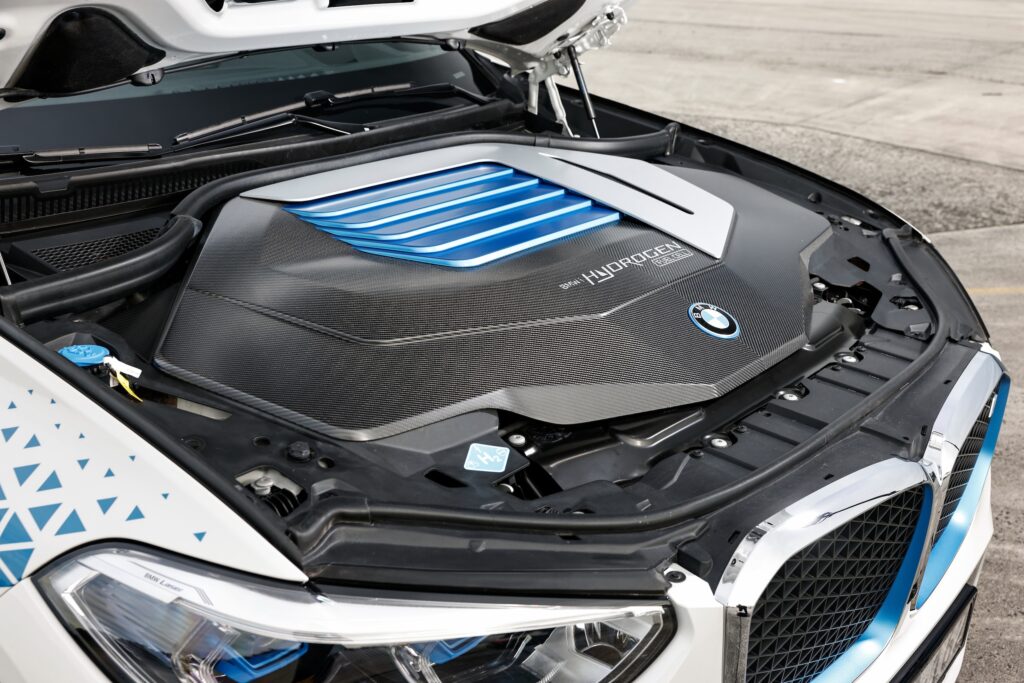
And that’s one of the challenges for FCEVs currently: an almost complete lack of fuelling locations.
But BMW’s general manager of the hydrogen project for the Group (which includes Mini and Rolls-Royce), Dr Juergen Guldner, says there is a role for hydrogen-powered vehicles moving forward.
“For us it’s an important thing and we think we need both technologies (EV and FCEV),” says Guldner.
“Australia has all the ingredients,” he adds. “If the Australian strategy embraces having battery electric cars and hydrogen cars as a combination rather than trying to do everything with battery electric … it could become a lead market globally).”
BMW’s rationale is that for some applications – including larger and heavy duty vehicles and long distance travel – hydrogen makes more sense.
That’s because, he argues, the investment required for fast charging networks on a mass scale is prohibitive, while hydrogen scales more easily.
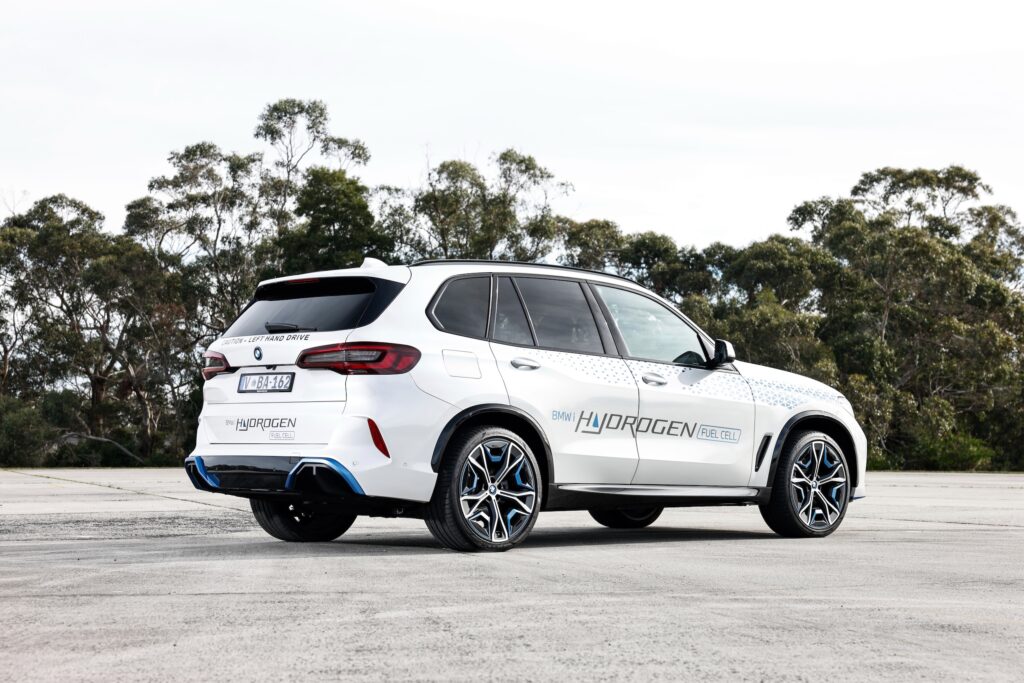
It’s there Guldner believes an investment in a refuelling network would make sense, one reason he travelled to Canberra this week to meet with Australian politicians to ram home the point.
Another enormous challenge for hydrogen fuel cell vehicles currently is the cost to manufacture them.
Toyota and Hyundai currently build the Mirai and Nexo respectively and lease them locally, but the prices of each internationally are a long way off price competitiveness with equivalent battery electric model.
But Guldner believes by 2030 there could be price parity between EVs – which, in turn, should be at least on a par with ICE vehicles – and FCEV.
“We think we can get on par (with price),” he says, pointing to manufacturing scale and the global investment that should lead to maturation of the technology.
Still, hydrogen fuel cell vehicles are proving a tough sell globally.
Just 14,451 FCEVs were sold globally in 2023, down 30 per cent from the year before.
In comparison, there were 14.2 million battery electric vehicles sold in 2023, an increase of 35 per cent.
And whereas every car brand globally is working on battery electric vehicles, many have shunned hydrogen – including, famously, Tesla – while those that are working on it predict it won’t get decent scale until 2030 or beyond.
BMW will decide by the end of 2024 whether to proceed from the pilot phase to a full scale manufacturing program for its FCEV tech.
“The first car we’re getting ready to have the possibility to do that towards the end of this decade, but we haven’t made that decision yet,” says Guldner.
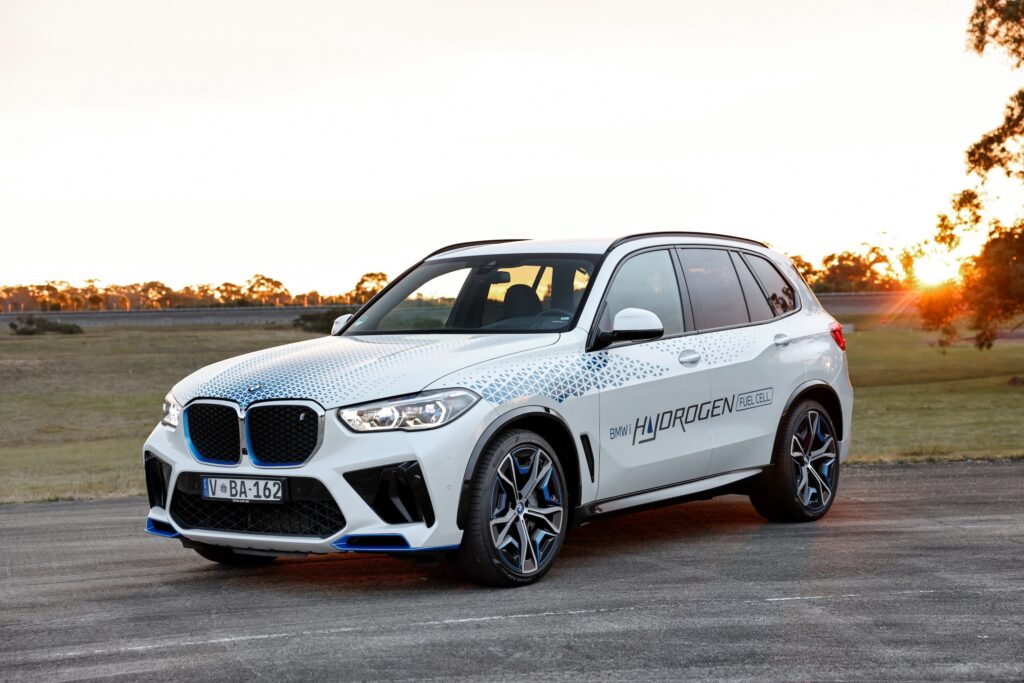
He says the earliest a BMW FCEV could be in dealerships would be 2030 – at which point battery technology and EV competitiveness is expected to have rocketed ahead – but that he sees a role for hydrogen across the entire model range.
“The technology works in all types of cars,” says Guldner, adding that any FCEV production car would be adapted to an existing architecture to allow for manufacturing flexibility depending on customer demand. “It makes more sense to start with the bigger, heavier cars. How far down it really trickles it’s hard to predict.”

